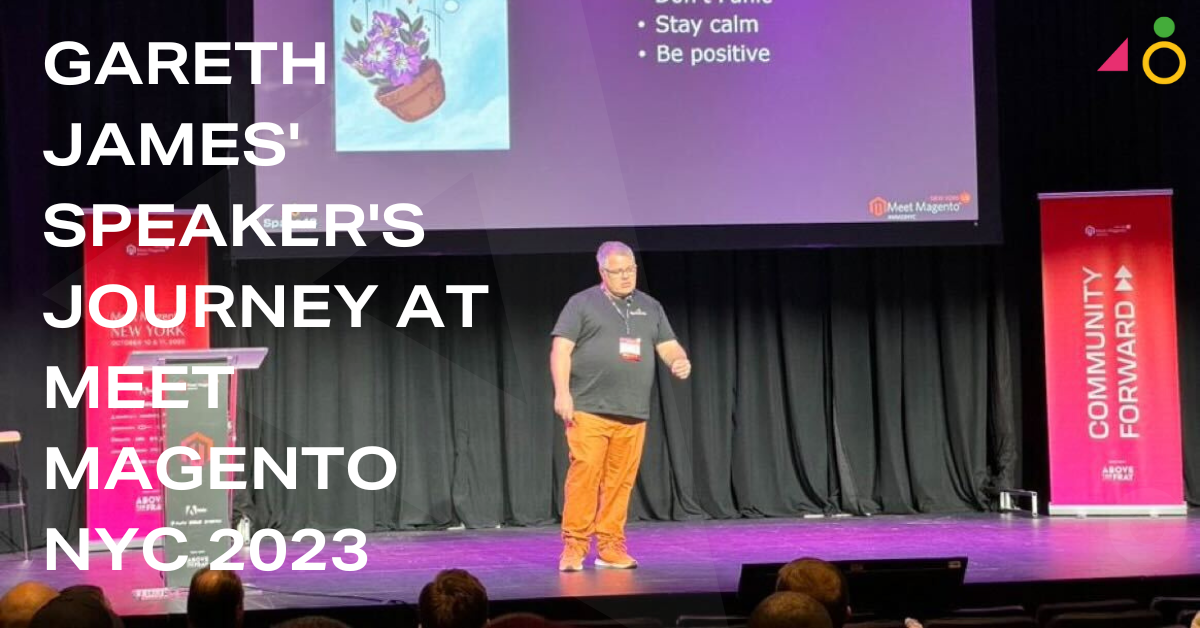
Adobe’s Acquisition of Magento: Leading the Change
Since the news of Adobe’s acquisition of Magento Commerce dropped, the Internet and social media networks have been buzzing with excitement and intrigue. Our MD Jon Woodall offers his thoughts on the huge move and its potential impact on the industry.
#LeadTheChange
The theme of the recent Magento Imagine 2018 conference was “Lead the Charge”, signalling a war cry from the Magento platform and its community to lead the way with innovation and to create the best shopping experiences possible for consumers.

In light of Adobe’s announcement about acquiring Magento Commerce, it feels like this message should be shifted to “Lead the Change” and thrive in uncertainty!
Big news, but not a big surprise
Although the announcement is huge news for the industry, it’s perhaps not a big surprise considering Magento’s recent journey and similar acquisitions and mergers within the industry over the past few years.
Magento was acquired by eBay for over $180 million in 2011. Then in 2015, Magento Commerce launched as an independent company in 2015, backed by private equity firm Permira Funds (which acquired Magento from eBay). Mark Lavelle, former Senior Vice President at eBay Enterprise, became the company’s new CEO.
In early 2017, it was announced that Chinese investment firm Hillhouse had invested $250 million and this further cash injection saw Magento valued at $700 million. So, Magento has really seen a lot growth and change in recent years.
Now it’s reported that Adobe are acquiring Magento Commerce for around $1.68 billion, in a move which echoes Salesforce’s $2.8 billion acquisition of Demandware in 2016.
How will Adobe’s acquisition of Magento impact the industry?
A change like this will always throw up a lot of questions about the motives of the acquisition, what the future holds and how it will impact the industry. Change can be scary but it can also be exciting.
Here are a few questions to consider in the wake of this news:
- How will Magento sit alongside the Adobe’s Experience Cloud?
- What features and functionality will evolve from this?
- What technologies will Adobe bring to the Magento platform?
- Is this move aimed at bringing the B2B and B2C worlds closer together?
The first three questions are clouded in uncertainty at this point, but the answer to the last question looks fairly clear. The announcement on the Adobe blog (https://theblog.adobe.com/adobe-brings-leading-commerce-platform-magento-experience-cloud/) echoes this sentiment:
“Combined with Adobe Experience Cloud, the Magento Commerce Cloud will bring digital commerce, order management and business intelligence to enable both B2B and B2C shopping experiences across the customer journey,” says Brad Rencher, an Executive Vice President and General Manager at Adobe.
I mentioned Saleforce’s acquisition of Demandware previously, and this move from Adobe shows similar ambitions to offer an unified and powerful B2B and B2C experience.
Experience-driven and community-driven commerce
Another key motive for Adobe seems to surround the community commitment demonstrated by Magento. This seems to fit in with Adobe’s vision for the future of commerce. With both Adobe Experience Cloud and Magento Commerce Cloud, Adobe combines a powerful open source ethos in this partnership.
In a piece by Head of Adobe’s Developer Ecosystem Matt Asay, entitled “Doubling Down on Adobe’s Open Platform Vision with Magento“, Matt discusses how the move brings together Adobe’s commitment to helping brands promote experiences not products and Magento commitment to its community.
The result is a powerhouse of experience-driven commerce and community-driven code. Boasting over 300,000 developers, 800 technology partners and 350 system integration partners, Magento offers an enviable community core to Adobe’s operations.
Each year at Imagine, Magento honours its “Magento Masters“, awarding individuals for their contributions and involvement in the community. Here’s our Ecommerce Evangelist Tom Robertshaw on stage with fellow Magento Masters and Mark Lavelle!

Magento recently formed the Magento Association, as part of further efforts to strengthen the Magento community of developers and ecommerce agencies. I’m sure the executives of Adobe will be grateful of the invaluable work done in this space over the past 6-12 months.
So what happens now?
The initial messages coming out of Magento and Adobe is that it’s very much business as usual for now. It’s very early days and it takes time for a big change like this to work itself out, and no big changes are expected to come into play until Adobe’s Q3. But I’m interested to see what happens from here.
Combined, Adobe and Magento can boast some huge brands using their platforms, across a wide range of industries, such as Coca-Cola, Warner Music Group, Canon, Helly Hansen, Nestle, Rosetta Stone and Paul Smith – to name just a few!
We’ll soon discover how we all fit into the new world view of Adobe and Magento Commerce. For me personally – and for Space 48 and our developers and consultants – this is a key time to learn more about Adobe!
Have you seen Space 48’s new video yet? The video explains our brand vision and how we work with clients in this fast-paced ecosystem. Take a look!
Space 48 is a leading UK ecommerce consultancy, based in Manchester. If you need help with your ecommerce strategy or platform, get in touch with us today. We’ll help you pinpoint the key areas of opportunity for your business and where you can improve performance!





